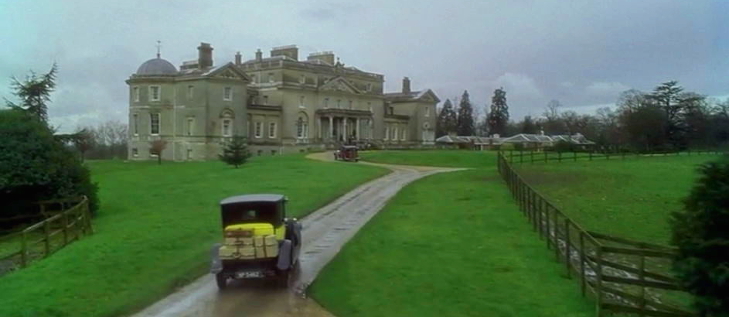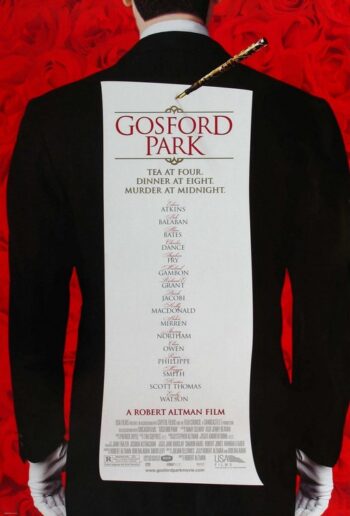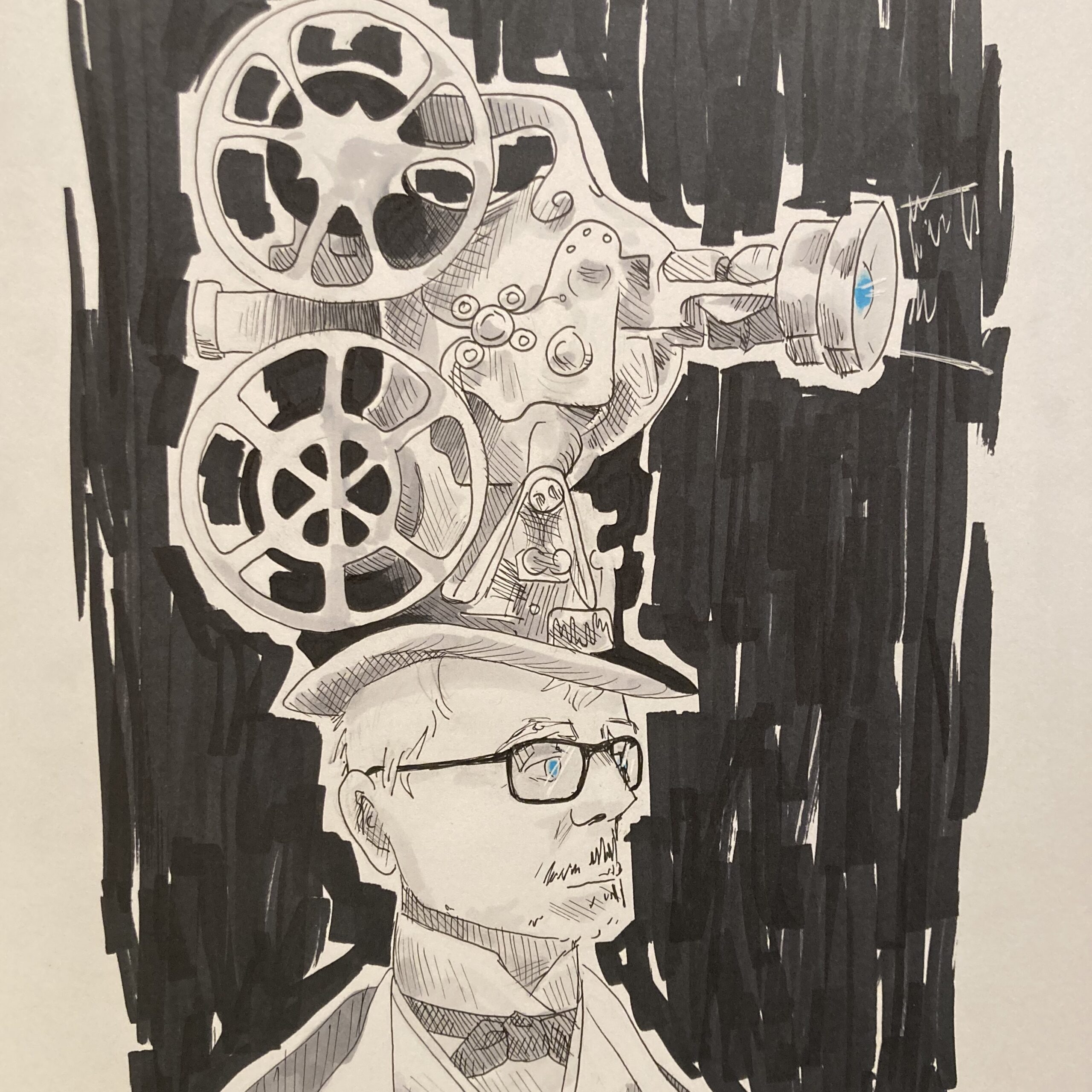“What gift do you think a good servant has that separates them from the others? It’s the gift of anticipation.”
It’s hard to warm up to Robert Altman’s movies, but it’s easy to be terribly impressed. Long-known for building texture—the consequence of using large casts, building scenes with overlapping dialogue, moving his camera to re-frame point-of-view, and spying on people to reveal behavioral contradiction—Altman’s oeuvre is filled with strong impressions about social norms that rest on brilliant performances. But these same attributes can leave a person cold because the work is so clearly choreographed, sometimes beyond honest emotion.
Gosford Park (2001) illustrates all that is right and wrong with the Altman machine. Centrally about class performance in pre-Word War II England, the action comes to a head when a murder mystery unfolds.
Set in 1932, in the eponymous country home of wealthy businessman Sir William McCordle (Michael Gambon), who made his fortune through war profiteering, the action opens as guests arrive. The “upstairs” weekenders are a mixed lot of snobs, mostly with inherited wealth and position, although there is one media star, Ivor Novello (Jeremy Northam), and his friend, an American movie producer named Morris Weissman (Bob Balaban). The other guests are hangers-on, including McCordle’s sister, the Countess of Trentham (Maggie Smith), and various professional associates herded along by McCordle’s wife, Lady Sylvia (Kristin Scott Thomas).
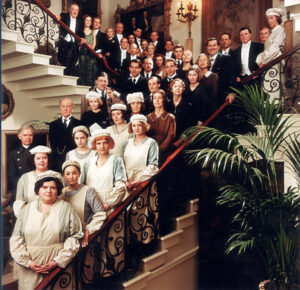
The “downstairs” staff, those servants enabling the life of leisure of this landed gentry, includes dozens of footmen, valets, butlers, and maids, and McCordle’s lover, Elsie (Emily Watson). This world of servitude parallels the world above, as all the rules of prestige and deference are enforced by Gosford Park’s butler, Mr. Jennings (Alan Bates), head housekeeper, Mrs. Wilson (Helen Mirren), and head cook, Mrs. Croft (Eileen Atkins).
Through amusing set pieces of the weekend’s activities, we learn that everyone has deeply-held secrets, often centered on hating McCordle, so no one is above suspicion when he turns up dead. Yet the extraordinary crime of his murder is, in this circumstance, little more than an inconvenience to house guests and staff. So much more of their attention is spent hurling dialogue, courtesy of Academy Award winner Julian Fellowes, and wearing florid costumes to adorn carefully manicured rooms that exist beyond practical necessity.
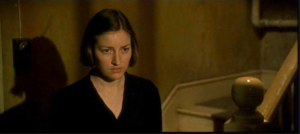
The movie’s heart is the presence of an outsider, Mary (Kelly Macdonald), a newly employed maid to the Countess who is unused to the habits of wealth that make ordinary folk like her into a combination appliance-confidante. Through her eyes we piece together McCordle’s murder and learn the nature of household dynamics from Mrs. Wilson who explains to Mary: “What gift do you think a good servant has that separates them from the others? It’s the gift of anticipation. And I’m a good servant. I’m better than good. I’m the best. I’m the perfect servant. I know when they’ll be hungry, and the food is ready. I know when they’ll be tired, and the bed is turned down. I know it before they know it themselves.”
Gosford Park is a cold, impressive, and busy movie. Its ensemble is perfectly turned out and its take on thwarted ambition and revenge is strong stuff, but for a few quiet moments when frailty and a stiff upper lip give way to an outpouring pure emotion.
–April 30, 2019
